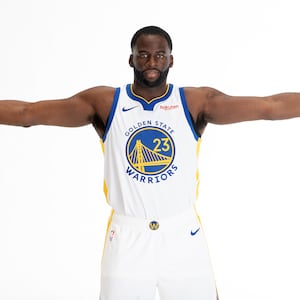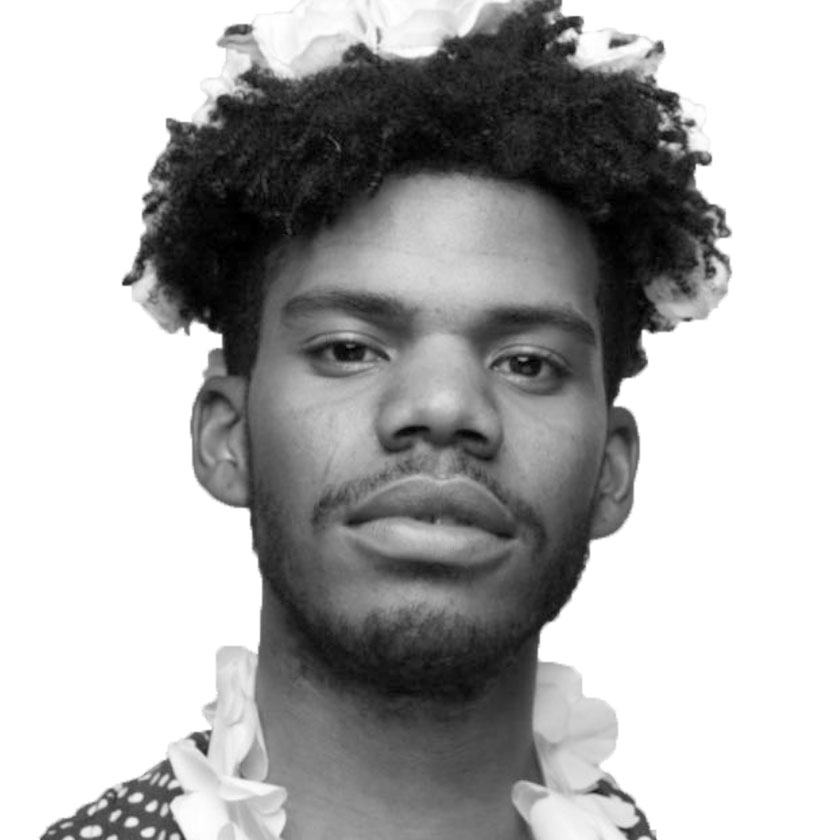Our relationship to sports-as-media is changing. In one of the most ironic reversals of the digital era, it’s athletes themselves pulling the levers. And the premier athletes in American sports are in the NBA. So, what happens in that league has the greatest potential for causing a ripple effect. Two moments from the past year explain this changing landscape pretty succinctly: the recent conversation between Draymond Green and Kevin Durant touching on their highly publicized beef during Durant’s final year with the Golden State Warriors; and ESPN’s shady handling of one of their most talented broadcasters and journalists, Maria Taylor, culminating in this week’s icing of Rachel Nichols and the cancellation of her daily NBA show The Jump.
The fight’s been told ad nauseam but, just to recap: Durant and Green’s spat began on the court—during a November 2019 regular season game against the Clippers in the former’s contract year—and quickly spilled into the locker room and the wider hoop media. After the Clippers took a late lead in the fourth quarter, and with the clock ticking, KD—the most automatic bucket in the league—called for the ball only to be ignored by Green, who ended up turning it over and thus losing the game. Afterward, Durant snapped at Green who, in turn, called him a “bitch,” said the Warriors didn’t need him to win, and questioned his loyalty to the team. By the end of the season, it was pretty clear to everyone that he was leaving the Bay.
What we didn’t know then, outside of a one-game suspension for Green, was how Warriors team management handled the situation. But, a few weeks ago on Green’s YouTube series Chips, KD and Draymond chopped it up about the altercation. “It wasn’t the argument,” KD replied when asked about the fight, “it was the way that everybody—Steve Kerr acted like it didn’t happen, Bob Myers tried to discipline you and put the mask over everything.” Put a pin in that.
Earlier this week, ESPN announced that they’d booted longtime broadcaster Rachel Nichols from NBA coverage after an eventful summer wherein a private recording of her demeaning ESPN colleague Maria Taylor—essentially branding her an underqualified diversity hire—hit the internet. Taylor, who is one of many Black women (including WNBA players, journalists, and commentators) leading the conversations around race and sports, particularly through the minefield of the George Floyd protests last summer, earned the position of hosting the 2021 NBA Finals pre- and postgame shows. Nichols believed her spot to be teflon: “I just want them to go somewhere else” she told Adam Mendelsohn (an adviser to LeBron James) on the call—“it’s in my contract, by the way; this job is in my contract in writing.” Welp.
A couple days, an extremely awkward public apology—that saw former players turned analysts Richard Jefferson and Kendrick Perkins doing their best impression of Denzel Washington in his 2000s white girl-savior era—and a few weeks of acting like none of this happened later, and that contract that Nichols touted went to hell. She’s basically out.
As divergent as they may seem, both examples signal a changing tide, one that the NBA’s major TV partner, ESPN, feels very intensely. The white-hot political climate in which multi-million dollar athletes—a majority of whom are Black—are regularly asked to tout their ideas around race, justice, and crime does indeed extend to the networks themselves. It serves the league and ESPN to at least look like they give a damn about these topics. Is it fair to think that ESPN’s hand was forced when it came to ousting Nichols, despite the reality that the core issues weren’t dealt with? Much in the same way that Warriors management had to suspend Draymond even though—if Green and Durant are to be believed—they covered it up to try to save public face?
The NBA, for what it’s worth, has the reputation of being the most progressive professional sports league, even if it’s not really the case. The players are still banned from kneeling during the national anthem, they fined J.R. Smith for tattooing a Supreme logo on his calf because it represented a conflict of interest, and despite a relatively chill attitude toward social media, members of the NBA family cannot tweet in support of liberation movements for places like Hong Kong, for example, without incurring the wrath of the league. It’s always important to remember that the NBA is a multi-billion dollar multinational corporation, with stakes in companies and views that very much go against justice and progressivism in the plainest sense.
If the Green/Durant and Nichols/Taylor beefs are any indication, the white-led team management and TV networks are much more keen to band-aid racial and gendered issues rather than actually take a stand or deal with the root causes.
Green and Durant rather comedically blamed Warriors coaching staff for fumbling the ball with regard to team chemistry. It could be argued that if they wanted to solve the problem themselves, they could’ve undermined every avenue the team took and just talked face to face about it. Instead they relied on largely white middle managers to facilitate reconciliation knowing that that wasn’t what they wanted. But it’s the comfort that they had with one another, the ease with which they decided to name names—especially a media darling like Steve Kerr—that echoed across the league. They didn’t need ESPN, The Athletic, The Players Tribune or any other media outlet to get this conversation started, only two willing participants with their own platforms. Every day it seems the cultural relevance of ESPN’s 24-hour sports channel dwindles. More and more fans watch less games in full on networks, opting for YouTube or Instagram highlights, NBA Twitter, and illegal streaming sites. And the players themselves are capitalizing on the NBA-adjacent media feeds, effectively making shows like The Jump even more obsolete.
It stands to reason that ESPN would put The Jump out to pasture after a racial blow-up like this one. The Nichols/Taylor fiasco is fascinating in the ways that gender and race were dissociated from one another from the start. “If you need to give her more things to do because you are feeling pressure about your crappy longtime record on diversity—which, by the way, I know personally from the female side of it—like, go for it. Just find it somewhere else. You are not going to find it from me or taking my thing away,” Nichols told Mendelsohn in one of the more damning statements in the leak. From the female side of it is really telling. What Nichols reveals is the gulf between how Taylor’s Blackness is divorced from her womanhood. Is Taylor not also a woman who faces the same pigeonholing Nichols does? Likely even more so? Nichols was taking part in what Northwestern Professor Moya Bailey terms misogynoir, which speaks to the ways that both anti-Blackness and misogyny operate to minimize, stereotype, and dehumanize Black women in digital media and popular culture.

Maria Taylor and Sloane Stephens speak as Sloane Stephens hosts a private tennis clinic with Mercedes-Benz on August 21, 2019, in New York City.
Noam Galai/GettyTaylor recognized the value that she brought to the table and immediately escaped what turned out to be a toxic work environment. In an email written to ESPN executives at the time of the leak, Taylor explained that, “Simply being a front-facing Black woman at this company has taken its toll physically and mentally.” And until the network deals with that specific and systemic damage that could convince a woman of Taylor’s stature and prestige to leave their network, they will continue to flounder on topics of race, gender, and class.
The mass exodus from ESPN of legendary radio host Dan Le Batard, writer and broadcaster Jemele Hill, NBA insider Amin Elhassan, 17-year NBA Countdown producer Amina Hussein, and, more recently, writer and TV analyst LZ Granderson, all speak to the racial and gender wounds they’ve tried to cover up all of these years. Whether it’s on the court or in front of the cameras, learning how to navigate the interlocking experiences of employees with precision is going to be crucial to the network keeping the interest of a sports world that is largely influenced by Black culture.


